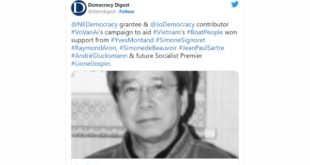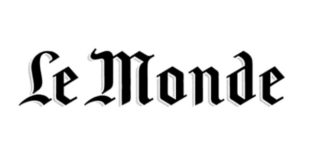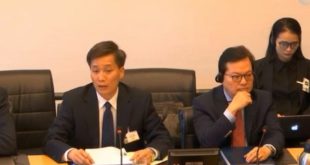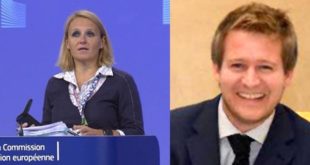HANOI, April 8 (Reuters) – Vietnam will permit a dissident Buddhist monk, who recently completed a 20-month jail term for stirring unrest against Hanoi, to resettle in another country if he wants to, a foreign ministry spokesman said on Thursday.
A representative of the United Nations High Commissioner for Refugees will meet monk Pham Van Tuong in the coming days in Ho Chi Minn City, spokesman Le Dung said.
“At this meeting of course he can discuss the question of whether he would reside in another country,” Dung told reporters.
Tuong. also known by his Buddhist name of Thich Tri Luc, was forcibly returned to Vietnam in 2002 from neighbouring Cambodia, where he had fled to escape persecution, human rights groups say.
The monk is a member of the outlawed Unified Buddhist Church of Vietnam (UBCV). Hanoi asserts he was arrested at the border of the two countries in July 2002 while trying to flee Vietnam.
Luc was charged with rallying foreign organisations “to fight against Vietnam” and sentenced in March in a closed-door trial. He was set free at the end of last month because he had served the majority of his sentence while being detained .
In Geneva, Vietnamese exiles said on Thursday they had pressed the case with officials of the UNHCR and the U.N. Commission on Human Rights, holding its annual six-week session.
The group, the Vietnam Committee on Human Rights, issued a letter it said had been sent secretly by Tuong describing how he had been kidnapped and beaten by Cambodian and Vietnamese security agents in Phnom Penh in 2002 and forcibly repatriated.
“This hand-written report… is concrete proof of the scandalous complicity between Cambodian and Vietnamese security agents in abducting a U.N. refugee and forcibly repatriating him to Vietnam in violation of all U.N. treaties and law,” the Paris-based group’s president Vo Van Ai said in a statement.
An attempted meeting with another member of Luc’s group by U.S. diplomats was less successful.
The U.S. embassy in Hanoi said that a delegation from its mission and consulate general in Ho Chi Minh City were unable to visit Thich Tien Hanh, also a UBCV member, at his pagoda in the central city of Hue on March 29.
“Apparent police actions” resulted in the meeting’s cancellation, Tom Carmichael. a spokesman at the U.S. mission, said on Thursday.
The UBCV said Vietnamese police created a diversion to block the meeting and locked the pagoda’s main gate, but Dung said such information was “totally fabricated”. He also said Hanh is not on “probation”, meaning facing travel restrictions.
Vietnam is often accused of repressing human and religious rights, which it routinely denies, it recognises six religions, including Buddhism, but oversees all aspects of their operations.
 Quê Me Quê Me: Action for democracy in Vietnam & Vietnam Committee on Human Rights
Quê Me Quê Me: Action for democracy in Vietnam & Vietnam Committee on Human Rights




